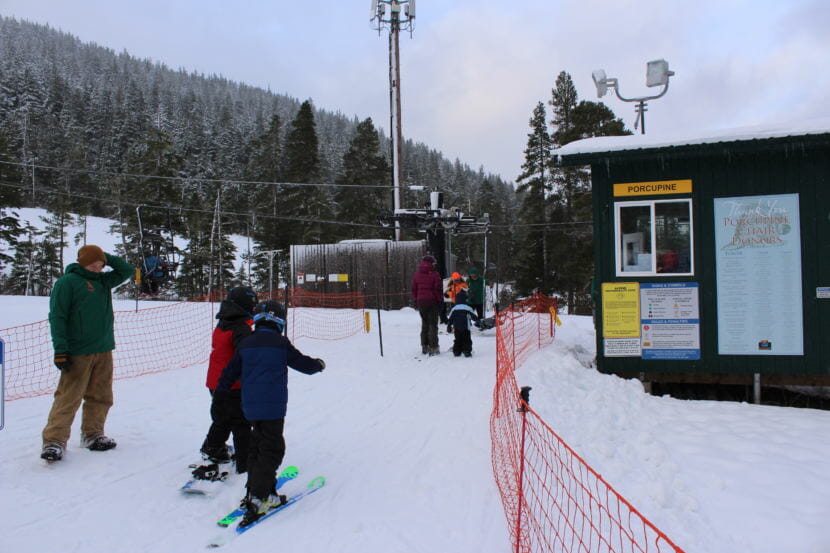
Staffing remains a challenge for Juneau’s Eaglecrest ski area after unfilled positions led to a loss in revenue last season. But workers from Central and South America could help.
Last week, Eaglecrest’s job postings had more than 7,000 views, but just six adults who applied met the qualifications.
“The interest seems to be there, but we’re not transitioning that interest over into actually receiving applications,” said Dave Scanlan, Eaglecrest’s general manager.
Scanlan said Eaglecrest has raised base wages by 23% over the last year and a half.
“In that same amount of time, the labor pressures on everyone have been tremendous,” Scanlan said. “We’ve seen base wages at all the other ski areas go up a lot faster than we’ve been able to raise them.”
According to Eaglecrest’s job postings, lift operators make $13 per hour, and non-certified ski instructors make $13 to $15 per hour. Other ski areas are paying $16 per hour for those positions, Scanlan wrote in a memo to the ski area’s board this week.
Ski season passes and lift tickets cost 10% more this year, but Scanlan said they need to remain affordable.
“We don’t want to out-price the community by raising the price too much,” he said. “Those two things just don’t add up to enough to be able to continue raising wages.”
Generating more revenue during the summer through things like the new gondola could help someday. It’s slated to start operating by 2028, though Eaglecrest plans to have it up and running sooner.
In the meantime, one group of workers could be key to making this season happen: students on summer break from the Southern Hemisphere.
Eaglecrest works with a company that connects workers with job opportunities abroad. According to Scanlan, there are 16 workers with J1 visas from Peru, Costa Rica and Brazil who could work as lift operators, cooks, ski instructors and rental shop staff at Eaglecrest.
“That would really give us the backbone of some of the core operations that we’ve had a hard time filling locally over the past couple years,” Scanlan said.
The J1 visa program requires workplaces to arrange housing options for the employees. Vacant rooms in a University of Alaska Southeast dorm could be a solution. Scanlan said the university has been renting rooms to tour operators this summer, and he’s hopeful Eaglecrest can reach a rental agreement with the university that meets that J1 visa agency’s price preference.
Housing remains a challenge for recruiting American workers, too.
Eaglecrest started last season without a supervisor for the rental and repair shop. They’ve received one application for that position, along with one for the lead repair shop technician job.
Scanlan said the most critical position to fill is a lift and vehicle maintenance manager. That job pays $25 to $31 an hour, but Scanlan said competition for lift mechanics within the industry is high. No one has applied yet for the job.




